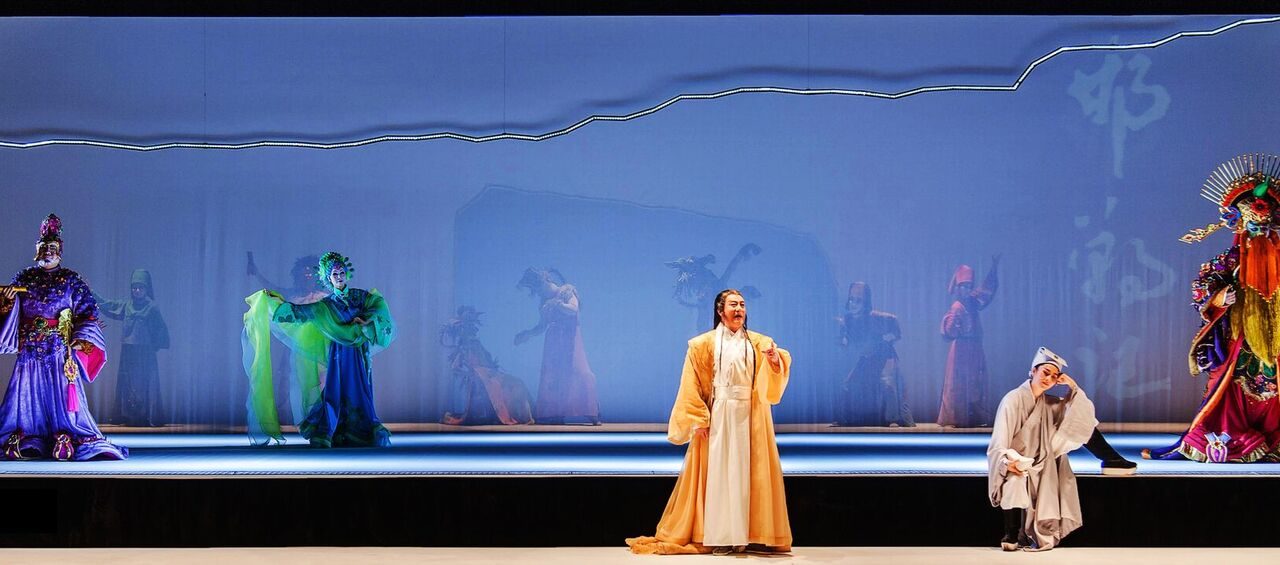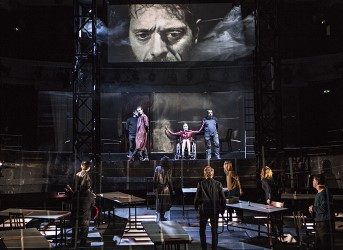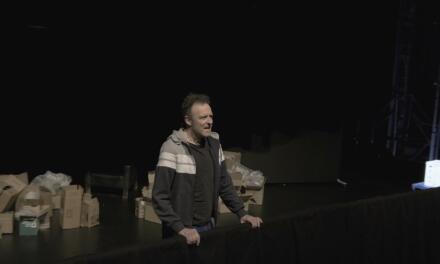Conceived in 2016 in Guangzhou and previously performed in Beijing and St. Petersburg, the Guangzhou Dramatic Arts Centre’s production of The Handan Dream had its UK premiere at the Hackney Empire in London on January 25-27, 2018.
Authored by the illustrious Ming-dynasty scholar and playwright Tang Xianzu—a contemporary of Shakespeare—The Handan Dream (Handan ji, 1601) is a classic Chinese-language play about an epiphanic dream, which upsets and brings a radically new perspective to the life of Lu Sheng, a young and frustrated scholar whose high aspirations for a successful career in the civil service have so far failed repeatedly.
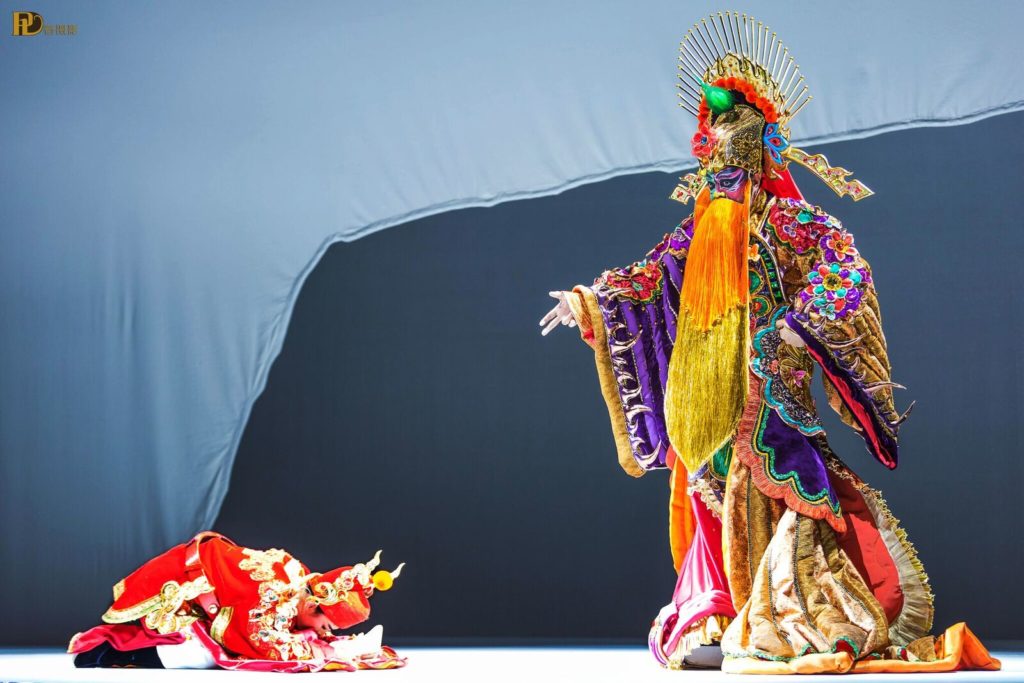
The Handan Dream by the Guangzhou Dramatic Arts Centre (January 25-27, 2018, Hackney Empire, London)
Surprisingly though, despite this being the foundational element of the plot, the play’s original title does not carry the word “dream” (meng) in it. Instead, in the original Chinese title, the play is presented as a “written record” (ji) of a story that though brimming with supernatural and fantastic elements, can claim to be true and believable, and therefore deserves to be immortalized for the benefit of posterity.
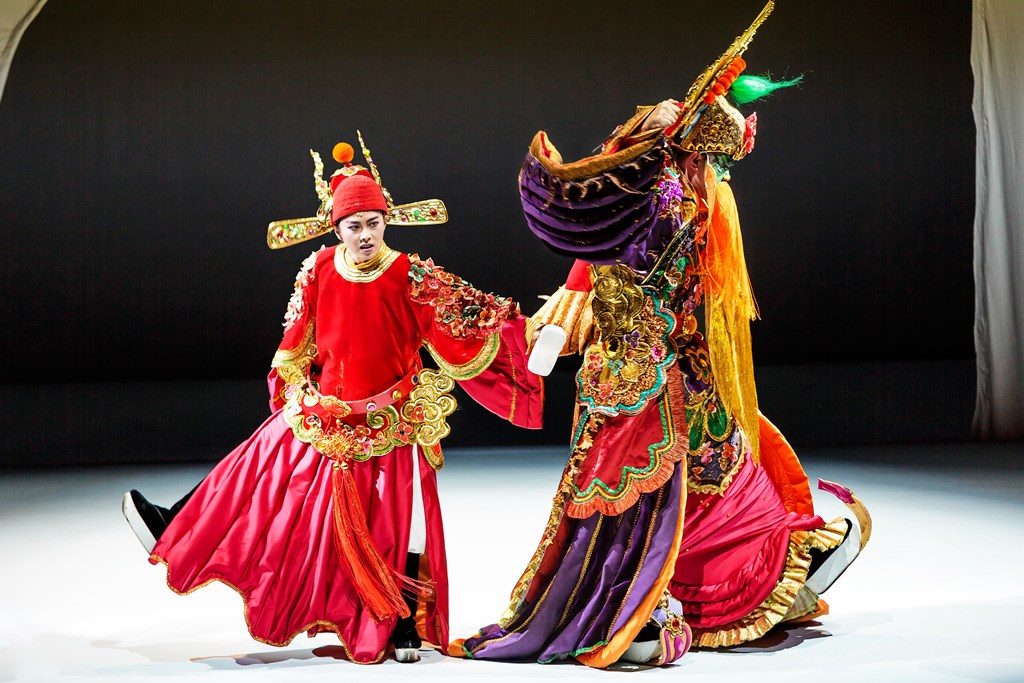
The Handan Dream by the Guangzhou Dramatic Arts Centre (January 25-27, 2018, Hackney Empire, London)
Combining entertainment with moral edification, we may qualify The Handan Dream as an extravagant exemplum, meant to serve as an eye-opener not only for the protagonist but also for the audience. The question at stake, here, concerns the notion of happiness and its achievement in this life. At the beginning of the play, the protagonist, scholar Lu Sheng, stubbornly equates happiness with fame, fortune, rank, and a prolific marriage. Hence, he is determined to pursue his ambitions by taking the imperial examinations, which should grant him a position as an official. Lu’s somehow boastful declarations are counterpointed by the words of another character, the Taoist Priest Qingyuan, who proclaims his acquired wisdom in his role of narrator and commentator, namely the realization that fame and success are ephemeral and certainly do not always make one happy. It will take a sixty-year long dream induced by an enchanted pillow and plenty of twists and turns to destabilize Lu’s certitudes and make him reconsider his views.
The Handan Dream revolves around the interplay between reality and dream, an element which the current production conveys through a complex arrangement of stagecraft, lighting, and music. Each of the three scenes flows smoothly into the next so that the transition from reality to dream and back again has a taste of magic and testifies to the Chinese holistic view of reality as fluid and boundless. A multi-layered spatiality and a sense of potential infinity pervade the stage; the stage design consists of two levels while, in the background, a white semi-transparent rolling curtain made of two different cloths simultaneously conceals and reveals the point of convergence between the tangible and the intangible dimensions of existence. Remarkably, from time to time the audience sees an automotive prop in the shape of a rice bowl traverse the stage. This is a clever way to visually convey the relativity of time in relation to the dream. While for the dreamer, Lu Sheng, it lasts an entire lifetime, in reality, the dream is only two hours long, which is the time needed to cook a bowl of rice at the inn where Lu has temporarily stopped for a meal and some rest during his journey to the capital.
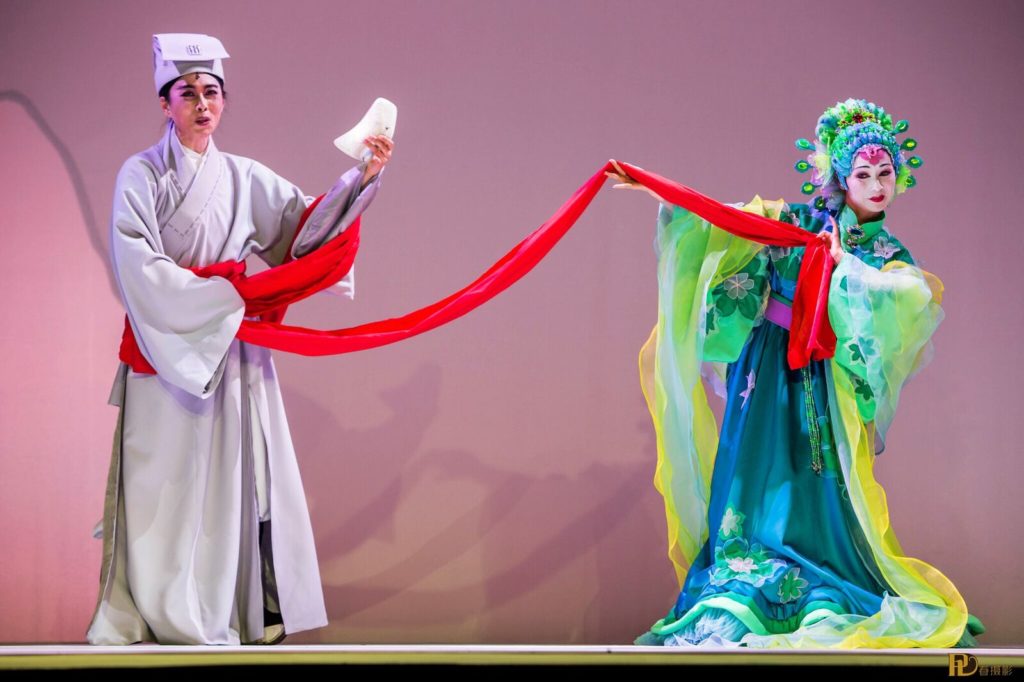
The Handan Dream by the Guangzhou Dramatic Arts Centre (January 25-27, 2018, Hackney Empire, London)
Aside from that, the production employs a bare stage, whose minimalism is counterbalanced by iridescent light games and by the characters’ elaborate and multi-colored costumes, which are not only delightful to the eye but also induce a sense of fairylike atmosphere and kaleidoscopic beauty.
Rather than a ‘pure’ Chinese opera, this production aims to blend elements of traditional Chinese theatre with aspects of modern European drama to create an aesthetics that should be more appealing and understandable to a non-Chinese audience. An example of this intercultural fusion is the joint use of Asian and Western musical instruments and tonalities. While the recitatives give us a feel of the declamatory style of kunqu (Kun opera)–the style in which the play was conceived back in the Ming dynasty—the singing is mostly akin to Western opera. Therefore, overall, the musical soundscape is far from “noisy” to the non-initiated ear.
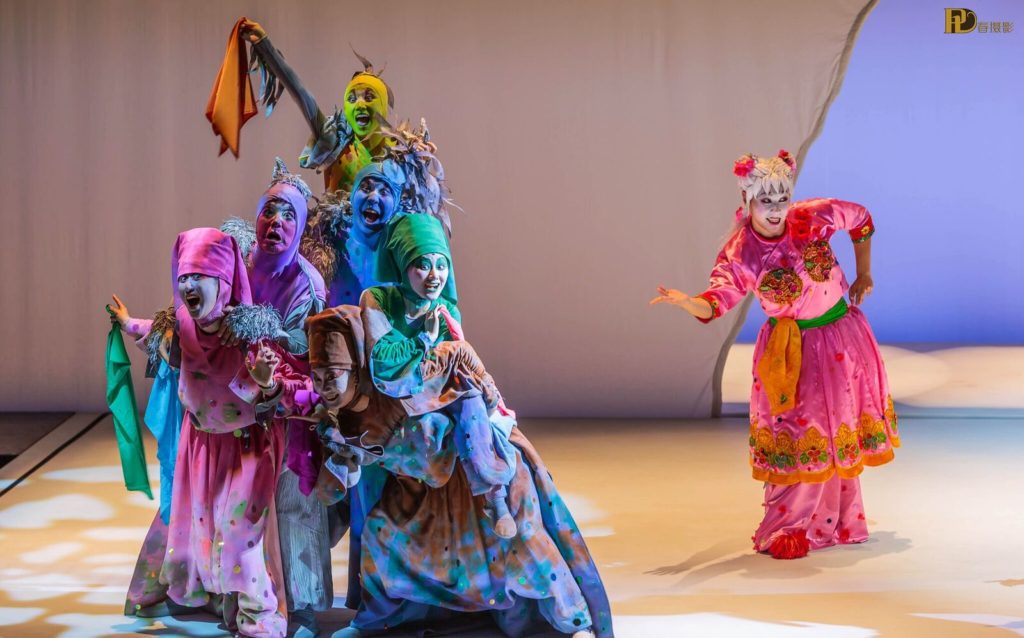
The Handan Dream by the Guangzhou Dramatic Arts Centre (January 25-27, 2018, Hackney Empire, London)
In terms of characterization, three features are worth noting. First, the attitude and stage presence of the Taoist Priest (played by Guan Dongtian), a fully enlightened being who appears and disappears at key moments throughout the play to narrate and comment upon the protagonist’s dream while also casting a detached look at the events happening on the stage with an air of seraphic calmness. Second, the choice of having a female performer (Li He) to play Lu Sheng. Li’s recitation is subtle but incisive as she portrays Lu’s pride and vanity and his different states of mind across the story’s three stages of development. Third, the prominent role given to the animals that live at the inn where Lu receives the magic pillow, which turn into human characters in his dream. In the original play these animals have no individual role as such, but in this version, they display well-defined personalities and their interactions resemble those between humans. Furthermore, their funny quarrels fill the play with plenty of comical scenes.
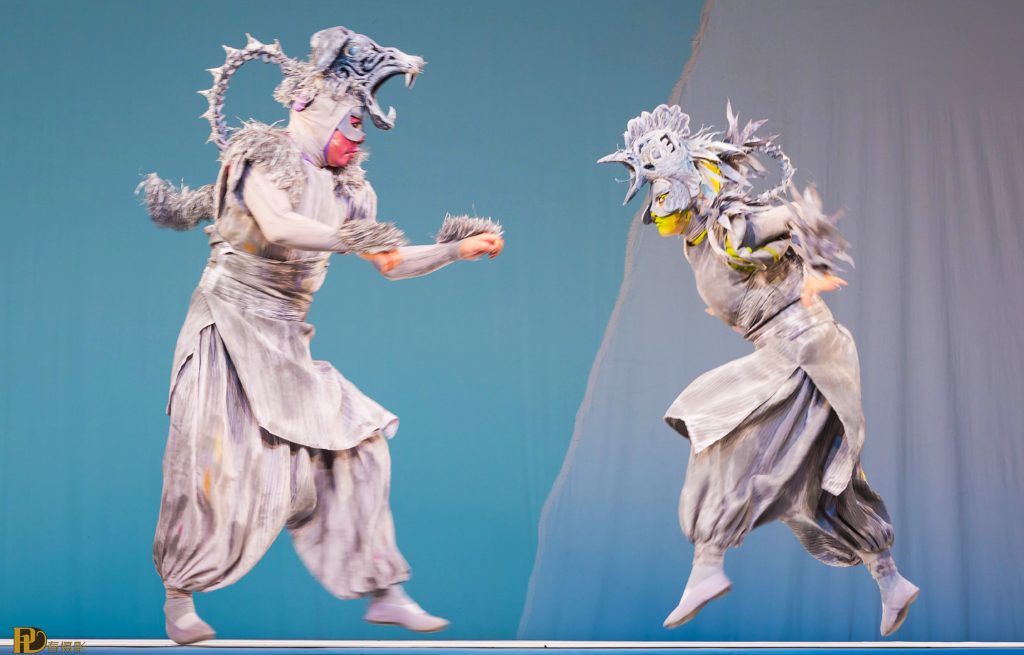
The Handan Dream by the Guangzhou Dramatic Arts Centre (January 25-27 2018, Hackney Empire, London)
Overall, this a charming and astute retelling of Tang Xianzu’s classic, one that not only succeeds in bringing the traditional theatre of China to Western audiences but also highlights its contemporary significance beyond temporal and cultural boundaries. After watching this production, we may feel that Lu’s anxieties and frustrations are, sometimes, also our own. Hence, we may be faced with his same dilemma: are our dreams worth pursuing or is reality, sometimes, better than any dream?
Letizia Fusini is Associate Lecturer in Chinese Theatre in the Department of Theatre and Performance at Goldsmiths, University of London.
This post was written by the author in their personal capacity.The opinions expressed in this article are the author’s own and do not reflect the view of The Theatre Times, their staff or collaborators.
This post was written by Letizia Fusini.
The views expressed here belong to the author and do not necessarily reflect our views and opinions.

